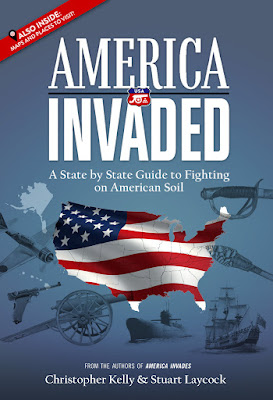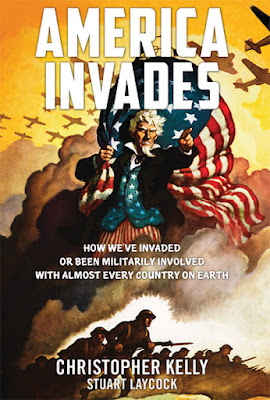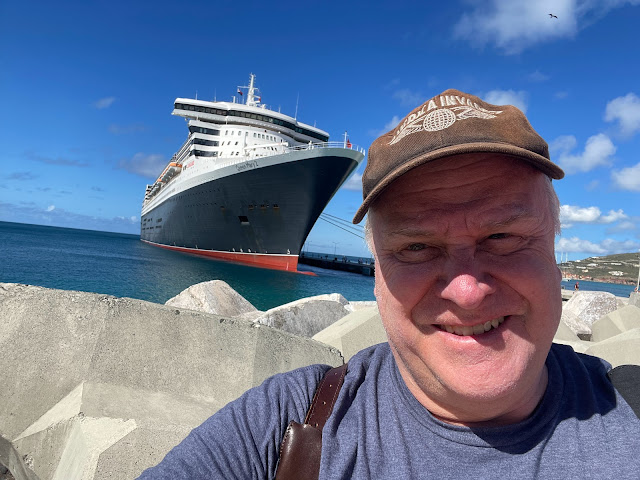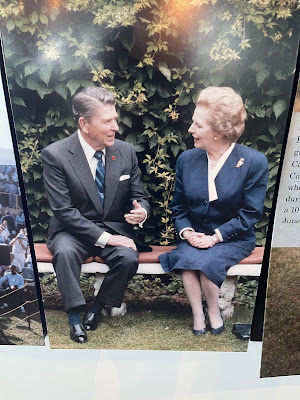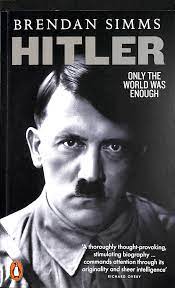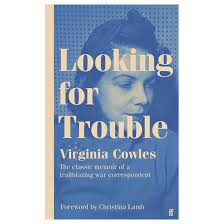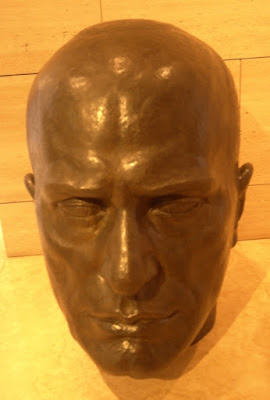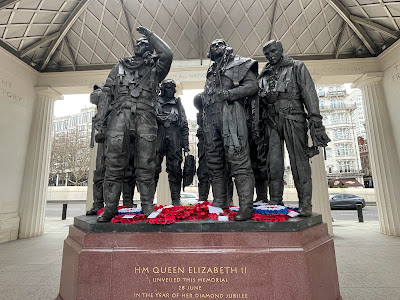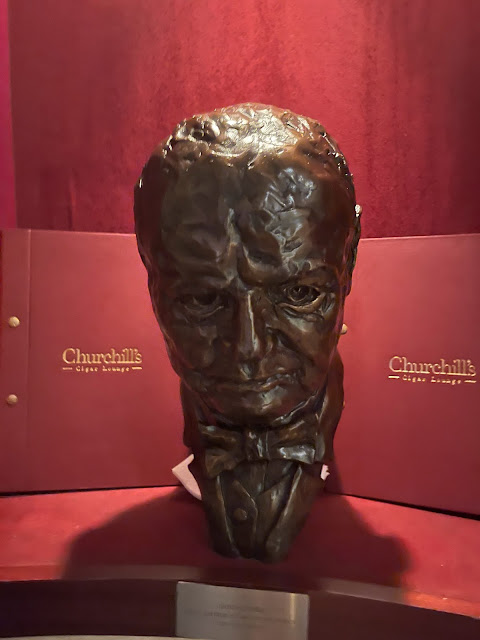 |
| Winston Churchill Bust Queen Mary 2 |
Let us begin with some sage advice from Winston Churchill, "Never, never, never believe any war will be smooth and easy, or that anyone who embarks on the strange voyage can measure the tides and hurricanes he will encounter. The statesman who yields to war fever must realize that once the signal is given, he is no longer the master of policy but the slave of unforeseeable and uncontrollable events."
Clearly Putin did not give this quote much consideration before he launched an unprovoked invasion of Ukraine in March of 2022. He did not realize that Russia would incur the enormous casualties that they have sustained. He did not predict the death of at least five Russian generals and one admiral. He did not predict the desertion of Russian troops on Russian territory. He saw only smooth sailing when huge storm clouds loomed. He did not foresee that Zelenski would emerge as a global champion of freedom. He did not seem to foresee that his attacks on civilian targets would mobilize the sane world in opposition to his aggression.
Though modern media likes to focus on what happened only in the last two minutes, History does provide some insight into the current situation in Ukraine. There has been a long historic track record of Russian ineptitude in bilateral military actions...
 |
| Battle of Tsushima May 27-28, 1905 |
1) The Japanese humiliated Tsarist Russia in the Russo-Japanese War of 1904-5. Port Arthur was captured by the Japanese and the Russian fleet, which had sailed around the world from Europe, was annihilated at the Battle of Tsushima. President Teddy Roosevelt earned a Nobel prize for mediating the peace between Russia and Japan (Biden take note!).
2) In 1940 Stalin's Soviet Union invaded Finland hoping for a walkover. Instead he got a bloody nose losing over 120,000 lives along the Mannerheim line. Adolph Hitler, based partly on this war, assumed that the Soviet Union was a broken nation. The intrepid correspondent Virginia Cowles (See earlier blog...https://www.blogger.com/blog/post/edit/4122629330054677829/6126452275842541559) traveled to Finland and wrote this description of "the most ghastly spectacle" she'd ever seen...
 |
| Virginia Cowles Eyewitness to Russo-Finnish War of 1940 |
"For four miles the road and forests were strewn with the bodies of men and horses; with wrecked tanks, field kitchens, trucks, gun carriages, maps, books and articles of clothing. The corpses were frozen as hard as petrified wood and the color of the skin was mahogany. Some of the bodies were piled on top of each other like a heap of rubbish, covered only by a merciful blanket of snow; others were sprawled against the treason grotesque attitudes." (Source Looking For Trouble, Cowles, 1941).
 |
| "Patience, Gentlemen, Patience!" |
3) In 1979 the Brezhnev's Soviet Union invaded Afghanistan which soon became their nation's Vietnam. Over the course of ten years this war killed over 25,000 Soviet troops and drained the Soviet treasury. Ultimately, the Afghan ulcer was a factor, along with Chernobyl and the stagnant economy, that brought down the Berlin Wall and pushed Soviet Communism into the dustbin of history.
Moreover, even Russia's wars with allies have not gone particularly well. In World War I Tsarist Russia managed to lose despite being on the winning Allied side! Nicholas II and his family were killed at Yekaterinburg. In World War II Stalin's Soviet Union prevailed but only after sustaining well over 13 million casualties.
 |
| Vladimir Putin |
Putin is clearly a liar and a killer ( See Killing Alexander...https://www.blogger.com/blog/post/edit/4122629330054677829/2043445940215711136). He presides over a kleptocratic oligarchy in which he is the principal criminal. Putin is one third Rasputin, one third Al Capone and one third Moriarty.
Clearly Putin failed the measure the "tides and hurricanes" (see Churchill quote above) of the war with Ukraine. As of this writing Russia seems to have sustained around 15,300 casualties in the conflict including the deaths of six general officers and one admiral. Over 100 Russian planes have been shot down. The Jerusalem Post now reports that Russian casualties in Ukraine have now exceeded those sustained over ten years in Afghanistan (https://www.jpost.com/breaking-news/article-702073)! Putin is not just a thief -- he is a blunderer.
The full scope of the blame does not rest with Putin alone. Clearly there has also been a failure on the part of the West to deter Russian aggression in the first place. This is not entirely due to Biden's bumbling though he has much to answer for (disastrous Afghanistan withdrawal etc.). Angela Merkel and the German SDP led her country in the wrong direction for many years encouraging the notion that NATO would allow an invasion of Ukraine. Defense spending among NATO members was allowed to sag for years.
Moreover, what Churchill said about yielding to war fever applies equally to Biden and the USA and the West.
The principle foreign policy task of every US president since Harry Truman has been the necessity of avoiding World War III. Any use of nuclear weapons would be an almost unimaginable catastrophe for the entire world.
Biden cannot afford to escalate the war in Ukraine to the point where it involves a super power showdown. But, equally, he cannot afford to not stand up for western values of democracy and self determination epitomized by Zelenski.
It must, however, be noted that Zelenski's Ukraine is hardly a perfect vessel for western ideals. The Azov battalion, with its Neo-nazis, is a part of the Ukraine defense forces (https://en.wikipedia.org/wiki/Azov_Battalion). Another Churchill quote explains the Azov battalion best: "It isn't only the good boys who help win wars; it is the sneaks and stinkers as well." Moreover, a smattering of unsavory Ukranians is insignificant compared with the ruthless over the top brutality of the Putin's invasion in targeting civilians.
Biden now faces the greatest challenge of his presidency; he must support Ukraine but not ignite the fuse on World War III. He must emerge as the "Master of events" and not "the slave of unforeseeable and uncontrollable events." God help us all!
